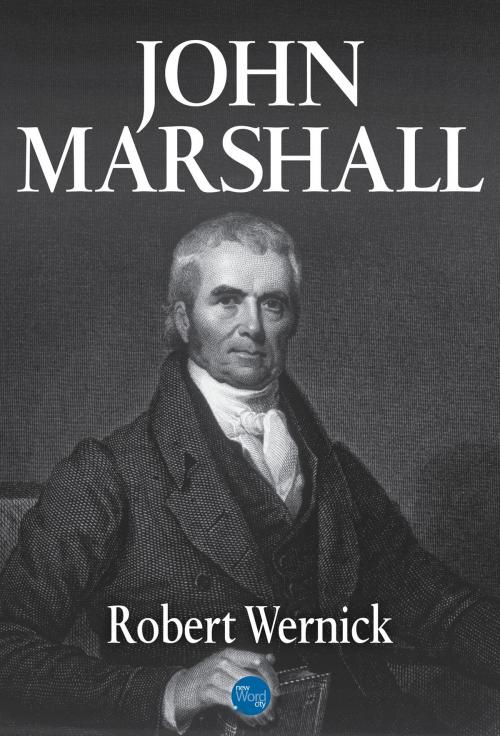John Marshall
Nonfiction, History, Americas, United States, 19th Century, Reference & Language, Law, Biography & Memoir, Historical| Author: | Robert Wernick | ISBN: | 9781612305882 |
| Publisher: | New Word City, Inc. | Publication: | January 25, 2017 |
| Imprint: | Language: | English |
| Author: | Robert Wernick |
| ISBN: | 9781612305882 |
| Publisher: | New Word City, Inc. |
| Publication: | January 25, 2017 |
| Imprint: | |
| Language: | English |
Thomas Jefferson and John Marshall - though second cousins - were opposites. Jefferson believed in states' rights - that the colonies that ratified the Constitution did so as sovereign states. He wanted the weakest federal government possible. Marshall knew that a federal government without the power to tax, to support a military, and to regulate finance was a recipe for anarchy. For thirty-four years, in decision after decision, he built up the legal power of the Supreme Court and, with it, the power of the federal government. Jefferson and subsequent democratic presidents were against everything Marshall did but found themselves helpless before his legal expertise in reading the Constitution. Jefferson's life and the crotchets of his character are familiar to us. His head is on the nickel. But Marshall, apart from his precedents, is little known. In this essay, award-winning author Robert Wernick paints a memorable portrait of the brilliant, convivial, plainspoken man and the issues behind the laws that the chief justice took in hand to create the powerful Supreme Court we know today.
Thomas Jefferson and John Marshall - though second cousins - were opposites. Jefferson believed in states' rights - that the colonies that ratified the Constitution did so as sovereign states. He wanted the weakest federal government possible. Marshall knew that a federal government without the power to tax, to support a military, and to regulate finance was a recipe for anarchy. For thirty-four years, in decision after decision, he built up the legal power of the Supreme Court and, with it, the power of the federal government. Jefferson and subsequent democratic presidents were against everything Marshall did but found themselves helpless before his legal expertise in reading the Constitution. Jefferson's life and the crotchets of his character are familiar to us. His head is on the nickel. But Marshall, apart from his precedents, is little known. In this essay, award-winning author Robert Wernick paints a memorable portrait of the brilliant, convivial, plainspoken man and the issues behind the laws that the chief justice took in hand to create the powerful Supreme Court we know today.















